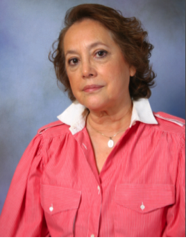
Invisibility and informality in Latin American Community Psychology
Maritza Montero, Universidad Central de Venezuela
This paper is a commentary on the Australia experience of advocating for the place of Community Psychology within the field of Psychology more broadly. In it, Dr Montero describes her experience, and the experience of others in Community Psychology in Latin America.
Download the PDF version of the article, including all commentaries, tables, and figures.
Commentary: Invisibility and informality in Latin American Community Psychology
When Tom Wolff sent his message to me, inviting me to comment about the experience in Australia, I immediately recalled the research carried out by Irma Serrano and I, about the histories of Community Psychologist in the twenty countries that compose that compose some two thirds of the America continent. In four of those countries (Bolivia, Cuba, Honduras, Panamá), finding psychologists working in community psychology was a hard task. Much to our surprise we found that it is neither applied, not taught in Panamá. While in Bolivia, only recently it is beginning to be taught, but at the same time, a wonderful participatory and critical programme of research, has been carried out for more than 35 years, in Indigenous Aymará communities, by two psychologists: Javier Mendoza & Mercedes Zerda. As they work with, and for those communities, they were unknown outside the country and also within it. Cuba and Honduras presented histories of public policies and work in the field of community health.
But also in countries where Community Psychology (CP) is known and where there have been academic programmes as far back as in the mid-seventies (i.e.: Colombia or México), those pioneering initiatives have not survived, although in the same tenacious way of Mendoza and Zerda in Bolivia, some admirable community psychologies have continued to carry on the stake. That is the case with Eduardo Almeida who for many years has kept a community programme also with indigenous communities in Puebla, Mexico, or Jorge Mario Flores in Guatemala and Mexico, or Carlos Arango in Cali, Colombia.
Although the amount of information, and the degree of development in most of the countries in the region is not only important regarding practice and publications, and the fact that the action and research produced in the region has developed a paradigm from participatory action and research, nourished by theoretical roots coming from Paulo Freire’s adults education, from Fals Borda’s critical sociology, from Marxian ideas (manuscripts, critique of German philosophy; Gramsci´s works, philosophy of liberation (Dussel, Levinas)., and has created and submitted to the proof of practices , concepts and relationships, in many countries in the region CP is rather invisible or informal. That is: presented under the social psychology, or clinical psychology umbrellas or as an appendix of health programmes. The following examples, going from South to North, illustrate the point:
Argentina: As an academic discipline, CP began to be developed in the early 90's. Saul Fuks & Antonio Lapalma (2011, 41-64), authors of quite a few research papers and responsible for the chapter about the history of CP in Argentina, began saying that "community participation is an emergent notion in the social sciences," and that its "instrumental use not always is sustained by the ecology of ideas" coming from CP. So it has a variety of uses, that deprives its content, forcing CP to keep retrieving its key concepts, meaning that it has to be reconstructed once again (2011, pp. 56-57). They complain of the fact that "with the exceptions such as annual Conferences, it has been impossible to gather community psychologists around common objectives" (p. 58), and they attribute at that lack of gremial support for the lack of CP institutionalization. I should bring up that Fuks has had for about some 30 or more years a very successful community programme with a large low-income community, near the National University of Rosario, where community stakeholders have been as engaged and committed as Fuks.
Colombia: This one of the first countries to introduce a CP related programme, and as Arango & Ayala (2011, 139-155) have written, what they have to tell is “a history of invisibility” ignoring CP (p. 139). A strong and shocking statement, especially if one knows that Colombia has hosted the two World Symposia about Participatory Action Research (Cartagena, 1977 & 1987). They describe the programmes of the Universities where they are professors (University of El Valle and Catholic University of Comobia, respectively). In the first case (El Valle), the pioneer programme is extinct, but Arango has created a new one that he has labeled as CP of Conviviality. The one at Catholic University is rather new but it is thriving. A very interesting programme created by National Open University (UNAD by the Spanish accronym) is fascinating because it teaches people that got to communities in small places, very far away from the big cities, and teach, in a participatory way. More than 12.000 people have been trained, and to me it is a great job. But people at the UNAD feel that their work and their alumni are somehow considered as in a lesser position. Invisible, although their institution is very formal, CP has been introduced by the Colombian Association of Psychology Faculties in the same Division along with Social and Environmental Psychologies; such union meaning that those three disciplines do not have enough “social weight “ as to be independent.
Venezuela: My own country, one of the first to embrace CP has had a tradition of community work included in Public Policies. Those policies have been carried out by a variety of professionals: architects, educators, engineers, economists, sociologists, social workers, physicians and since the 70’s, psychologists. But Academia was rather late in 8understanding what was happening outside the campuses. I was a young teacher at the end of the 70’s, and I ignored that a CP existed, but along with my social psychology students we felt that we could not solve the problems happening outside the University, unless we approached the people suffering them. So we began going out, doing a lot of group dynamics (the only method helpful at the moment) and in 1979, at an Inter-American Congress of Psychology, we discovered that what we were doing was called CP and there was a lot more in it. Although by 1982 I had a written a definition of CP introducing not only control but also power, by and for the people, it was only in 1986, that I was able to create a CP undergraduate course, but, under the social psychology umbrella. No other course has been added after that one. There is the possibility to do a master in social psychology, with CP mention. In spite of that many good dissertation and theses in CP have been made; as well as Ph.D. thesis. But CP has not formal recognition, yet, in the country, in spite of being one of the countries that has produced and is producing more contributions to CP literature, and that in Central University has been produced a line of Environmental CP. And there is a line of graduate studies in Community Clinical Psychology at Catholic University (created in 1999).
El Salvador: This country has an interesting history written by Nelson Portillo (2011, 213-233). CP was beginning to be developed in the late 70’s by Marta Mercedes Moran, who for political reasons that led to a tragic civil war, she had to flee. As Portillo says, that development was stopped because in the two main universities it was very much opposed due to the idea of a traditional-institutional vision that was considered useless. Social psychology was not prepared to do the task and it was re-introduced in the early 90’s after the end of the conflict, being then considered as very useful to work in the country reconstruction. According to Portillo it has been professionalized in the period between 1998-2002.
Mexico: In this country during the mid 70’s CP in the line of Newbrough and other US pioneers began to be introduced in Guadalajara by the ITESO a catholic academic institution. At the same time a very unusual and interesting experience directed by Emilio Ribes Iñesta, a conductist psychology was carried out in an institution dependent of the National Autonomous University (UNAM). This experience demanded that all the education was to be practiced in the communities around the site (workers communities), but it lasted only five years, and soon it was reverted to traditional psychology with elimination of CP. Recently (about five years ago), an undergraduate course in CP has been, for the first time created at the Faculty of Psychology of the UNAM. Almeida & Flores, authors of the chapter about México (2011, 277-304), have entitled it as The informality of Community Psychology in Mexico. They consider that community orientation has been very important in Mexico, but it has not been, so far, informalized. The terms community and community development, are key terms for social work; the concept of community is needed and used in many researches and practices; many institutions work for and in communities, and there are formal programmes in some universities (Sinaloa, Veracruzana, Morelos, Puebla, Yucatán), obviously, research and practices have produced knowledge and theoretical studies, but as those authors say “it seems that PC will continue transforming itself in Mexico, thanks to more non-institutional university experiences, but also thanks to the theoretical and methodological contributions from scholars who from their scientific and humanistic fields reflect and act in relation to community approximations to contemporary social problems” (p. 299). So, in spite of the slow attention towards formal CP, there is a future in the case.
 Maritza Montero, Universidad Central de Venezuela
Maritza Montero, Universidad Central de Venezuela
Maritza Montero is a Profesor at the Universidad Central de Venezuela.
Add Comment
Keywords: community psychology, training and certification, gjcpp